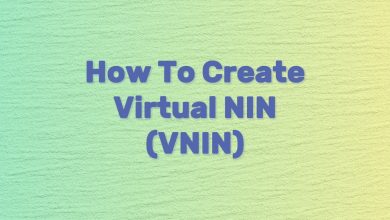Everything You Need to Know About Money Laundering Act of 2022
After decades of illegal activity and money laundering went unpunished, Nigeria passed its first money laundering statute in 2003. Since then, Nigeria’s anti-money laundering law framework has undergone four revisions: the first in 2003, followed by changes in 2004, 2011, and the most recent in 2022.
To combat the development of criminal activities, the Money Laundering (Prevention and Prohibition) Act 2022 (MLA 2022) was created to improve current anti-money laundering (AML) legislation and add new ones. In this post, we covered seven important things that companies should know from the freshly passed act.
Contents
- 1 Why is the Money Laundering (Prevention and Prohibition) Act of 2022 Necessary?
- 2 What are the principal modifications of The Money Laundering Act of 2022?
- 2.1 1. Tighter Limitations on Transactions Using Cash
- 2.2 2. Adopt DNBP or a designated non-financial profession and business.
- 2.3 3. Tighter KYC Standards for Proxies, Agents and Politically Exposed Persons (PEP)
- 2.4 4. KYC for Online and Ship-Based Gaming Facilities
- 2.5 5. Broadened Purpose of Reporting Suspicious Transactions
- 2.6 6. Financial Transaction Reporting and Disclosure Requirements
- 2.7 7. The SCUML, or Special Control Unit Against Money Laundering
- 3 Final Thoughts
Why is the Money Laundering (Prevention and Prohibition) Act of 2022 Necessary?
The Money Laundering Act 2022 was presented as part of increased efforts to accept and implement the Financial Action Task Force’s (FATF) recommendations on countering the funding of terrorism and anti-money laundering.
The Money Laundering (Prohibition) Act, No. 11, 2011, is repealed by the Money Laundering (Prevention and Prohibition) Bill, 2022, often known as MLA 2022. This bill outlines the institutional and legal framework that forbids and prevents money laundering in Nigeria. Furthermore, the legislation formally justifies the Economic and Financial Crimes Commission’s (EFCC) creation of the Special Control Unit Against Money Laundering.
What are the principal modifications of The Money Laundering Act of 2022?
Below is a summary of the top 5 significant alterations and additions to MLA 2022:
1. Tighter Limitations on Transactions Using Cash
The Money maintained the threshold amount for cash transfers and transactions above N10,000,000 (ten million naira) for corporate organisations and the N5 Laundering Act of 2022. It also makes it illegal to try splitting up transactions into smaller portions to get above the Act’s threshold value.
2. Adopt DNBP or a designated non-financial profession and business.
Under the repealed statute, certain types of companies were designated as Designated Non-Financial Institutions (DNFI). Nevertheless, the MLA 2022 broadens the definition of DNFI to DNBP and adds the following to the category:
- Pools wagering
- Companies in the hospitality sector
- Notaries Public
- Mortgage advisors
- Public service providers and trust
- Farming machinery with automation
- Developers, brokers, estate agents, and real estate
- Farming machinery and equipment
- Both precious stones and valuable metals
- Farmers that use mechanised farming
3. Tighter KYC Standards for Proxies, Agents and Politically Exposed Persons (PEP)
The MLA 2022 legislation strengthens the prior KYC standards by requiring all financial institutions (FI) and DNBP to take reasonable steps to guarantee that every individual working on behalf of a client is authorised, recognised, and vetted.
Additionally, companies falling under this category must take reasonable steps to confirm and determine the source of income and finances of clients and beneficial owners designated as Politically Exposed Persons (PEPs). They must also carry out much more thorough relationship monitoring.
4. KYC for Online and Ship-Based Gaming Facilities
The most recent statute expanded the scope of its compliance obligations to include online and onboard casinos. Companies in this sector must now perform KYC due diligence on their clients’ financial activities.
5. Broadened Purpose of Reporting Suspicious Transactions
Transaction reporting was contingent on suspicions of financing terrorism, transaction frequency, transaction economic worth, or unreasonableness, according to the now-revoked Money Laundering Act. The MLA 2022, however, has expanded the parameters of suspicious transaction reporting to include circumstances in which DNBPs or FIs have reason to believe that the transaction contains the proceeds of illegal activity, money laundering, or other offences.
6. Financial Transaction Reporting and Disclosure Requirements
The MLA 2022 raised the bar for reporting financial transactions to N5,000,000,000 (five million naira) for individuals and N10,000,000,000 (ten million naira) for business entities. Financial institutions must report to the Nigerian Financial Intelligence Unit, but DNPBs must disclose such transactions to the EFCC’s Special Control Unit Against Money Laundering.
7. The SCUML, or Special Control Unit Against Money Laundering
The task of coordinating the efforts of several organisations engaged in the fight against money laundering has traditionally fallen to the EFCC. They are also in charge of upholding all Nigerian laws about financial and economic offences. By executive decree, the Federal Government founded the Special Control Unit Against Money Laundering (SCUML) in 2005, and it is now housed under the EFCC.
Though the EFCC still manages SCUML’s administrative functions, the MLA 2022 has established a legal foundation for the organisation’s autonomous existence and functioning. The most recent legislation names SCUML as the entity overseeing DNBPs and ensuring they abide by the requirements of MLA 2022 and other applicable compliance regulations. SCUML is in charge of regulating DNBPs, while the EFCC handles financial institutions. Be aware that we have solely emphasised seven crucial factors as a business. The MLA 2022, however, goes beyond these seven criteria.
Final Thoughts
This article overviews the most recent Money Laundering Act of 2022, emphasising key provisions and obligations for Nigerian enterprises. Since the legislation has severe consequences for disobedience, particularly for enterprises with statutory duties, it should be carefully reviewed and implemented as quickly as possible.

